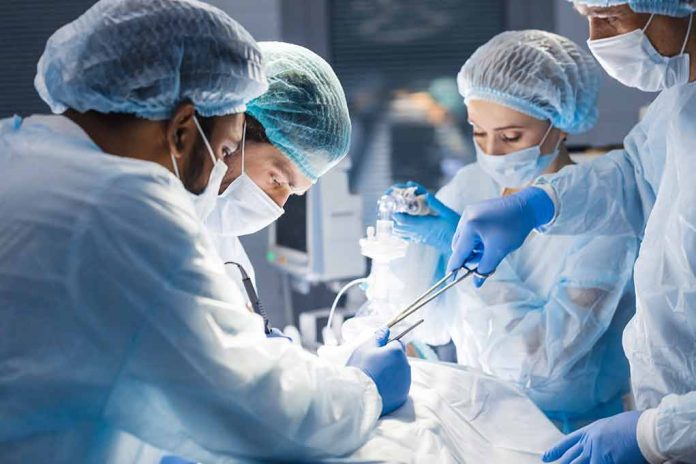
Revolutionary advancements in gene editing offer a promising solution to the global donor organ scarcity by paving the way for pig organ transplants into humans.
At a Glance
- Gene-edited pigs are being developed to provide organs for human transplants.
- Two successful transplants using genetically modified pig organs have been reported.
- The transplants could significantly advance xenotransplantation for patients with failing organs.
- Regulatory bodies ensure that ethical considerations are prioritized in this medical frontier.
Gene-Edited Pigs: A Solution to Organ Shortage
Scientists are utilizing revolutionary gene-editing technologies like CRISPR to enable pigs to supply kidneys and livers for human transplants. This effort addresses the dire need for donor organs worldwide. Successful transplants of genetically modified pig organs into humans have been reported, marking a significant advance in xenotransplantation. These procedures are crucial for patients with organ failures and could revolutionize the current organ donation system.
Massachusetts General Hospital conducted the world’s first genetically-edited pig kidney transplant into a living human, a 62-year-old man with end-stage kidney disease. This achievement marks a milestone in xenotransplantation, with a genetically edited pig’s kidney transplanted under an FDA Expanded Access Protocol for compassionate use. The edited pig genome featured 69 modifications to prevent rejection and improve compatibility during transplantation.
A man got a gene-edited pig kidney transplanted, making medical historyhttps://t.co/qPztB2pHIb
— Rob Stein (@robsteinnews) March 21, 2024
Technological and Scientific Breakthroughs
Gene-editing technologies remove potential barriers to successful organ transplantation, including disabling pig genes, adding human genes, and eliminating harmful viruses. The latest transplant involved a pig kidney edited by eGenesis and genetically tailored for compatibility with human biology. This groundbreaking collaboration with Mass General Brigham demonstrates significant strides in xenotransplantation, evidenced by the successful transplantation of a pig liver in China, Xijing Hospital.
“The tireless commitment of our clinicians, researchers and scientists to improving the lives of our transplant patients – both current and future – is at the very heart and soul of academic medicine and what it means to work and provide care at Mass General Brigham,” said David F. M. Brown, MD, President, Academic Medical Centers, Mass General Brigham.
This procedure in Massachusetts was a four-hour surgery conducted by the Mass General Transplant Center. The patient’s recovery is a testament to the potential of xenotransplantation, aiming to address global organ shortages, with over 100,000 individuals awaiting transplants in the U.S. alone. The promising results also involve innovative immunosuppressant drugs from Eledon Pharmaceuticals and Alexion Pharmaceuticals to aid recovery.
Pig organs are not compatible with the human body, hence the use of gene editing.
So how many edits are needed? It's a big debate in the field.
The donor pig in the transplant last month had 69 edits. This animal has just one. https://t.co/ENwW0DiYBp
— Emily Mullin (@emilylmullin) April 24, 2024
Future of Xenotransplantation
Regulatory entities are vital in ensuring that ethical considerations underpin this medical advancement. While challenges remain, this scientific breakthrough could transform the organ donation system. As research and development continue, the successes at Massachusetts General Hospital serve as significant milestones in reducing health disparities associated with organ donation.
“The success of this transplant is the culmination of efforts by thousands of scientists and physicians over several decades. We are privileged to have played a significant role in this milestone. Our hope is that this transplant approach will offer a lifeline to millions of patients worldwide who are suffering from kidney failure,” said Tatsuo Kawai, MD, PhD.
Mass General Brigham continues to lead in transplantation research, with its partnerships and innovative solutions demonstrating the tremendous potential of xenotransplantation to solve profound health challenges. As these advancements continue, the hope is for broader application and acceptance in modern medical practice, tackling the pressing issue of organ donor shortages.





